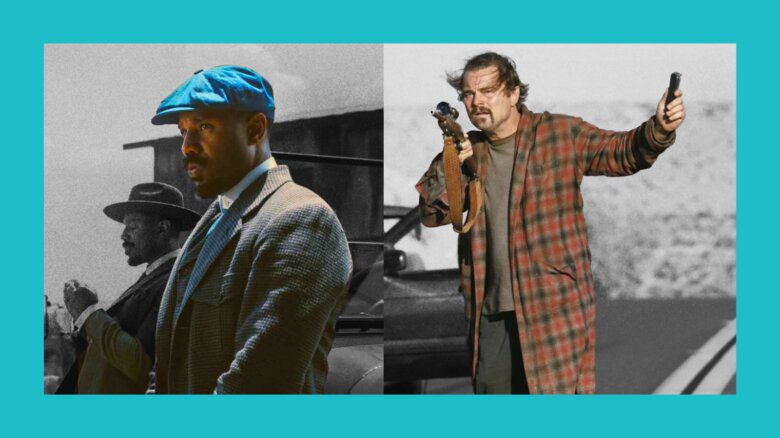Reading Anand Mahadevan’s first novel, The Strike, it dawned on me how similar Indian and Western cultures really are: the obsession with media and technology, the blurring of the lines between government and entertainment, not to mention the caste system.
“When I was in Montreal,” says Mahadevan on the phone from Toronto, “I noticed a lot of similarities between this Tamil culture in the book; the idea of trying to preserve language as a way of life in the face of other cultural clashes. It is very similar to the way Quebec works.”
Set in India during the late ’80s, the book follows 12-year-old Hari who personifies that culture clash by rebelling against his family’s vegetarian diet and religion by eating fish and exploring his feelings for another boy at a Bollywood movie matinee.
“Then, during the scene where the heroine was tricked into a brothel in Gangotri,” Mahadevan writes, “Hari shrank into his seat, afraid for her. Mohan must have felt the same, because he reached out and clasped Hari’s knee. Hari flinched and pulled his friend’s fingers off his leg. They held each other tight until the harsh notes of the music faded and the next scene began. Hari let Mohan’s hand fall and it lay over Hari’s thigh. When the heroine finally escaped and got on the train to Benars, Mohan leaned over and whispered in Hari’s ear, ‘Your leg feels nice and cool.'”
I ask Mahadevan if he feels Hari’s queerness is some sort of punishment for eating the fish.
“This is an Indian novel,” he says. “I think that Hari is definitely going to cause problems. His queerness is going to become more and more apparent, like the eating of the fish. He’s constantly straddling lines and showing his family that they’ve drawn these lines in the sand and makes them face up to the facts. Why have they drawn these lines? What do these lines mean? We just fall into these traditions and we do these things but we don’t really think about them.”
Over the course of the novel, Hari takes several train trips with his family to see his grandparents, leading up to the Dec 24, 1987 strike alluded to in the title.
“I was in that very same train when the strike took place — the train shut down and the entire state shut down. I was seven years old and I was there with my mother and my brother going to see my grandparents and we were completely cut off,” he says. “So I remember very visually this idea of loss of control at someone else’s beck and call. That was very powerful for me.”
It is on one of these train trips that Hari encounters Radha, a hijra or eunuch.
“Then he saw her. Her arms were slender and fine, though her skin was very dark,” he writes. “Her thick hair was pitch black and tied into a neat bun at the back with coral jasmines braided around it. Hari stepped back as he realized that she was eunuch. Her disguise perfect, he had failed to notice the man in the pretty woman. Here was a man more feminine than masculine, more dark than fair, more comely than muscular, and despite all this, he found her rather pretty.”
Radha spends most of the train ride begging for money and being harassed by the porter. She interrupts a card game and when the players brush her off, she threatens to curse them with impotence. Mahadevan explains that in Indian culture there is a connection between holding your sperm and holding your spiritual power.
“Because eunuchs have completely locked themselves out of this heterosexist paradigm, and because they are non-sexual in the sense that they don’t have functioning sexual organs in the same manner as heterosexist people, they’re considered to be spiritual,” he says. “You would always find them standing outside of weddings. They won’t go away until they’ve blessed the bride and groom, and the blessing is always that they will have male children — because Indians are obsessed with having male children, and then they get paid and then they go away. It’s a form of extortion really.
“They are tax collectors now because they are considered to be incorruptible simply because they don’t have the types of pressure Hari’s family has and they don’t play the types of games Hari’s family plays. If you don’t pay your taxes, they create a big ruckus.”
Even at the age 12, Hari fantasizes about immigrating to Canada or the United States. I ask Mahadevan if that is typical of queer Indians.
“More so of people of my generation or older — I don’t know what it would be like for people living in India now,” he says. “When we grew up, there was only one television channel and it was a state television channel. I knew no gay people; I had no images of gay people. There were no role models and no one to look up to and you felt completely isolated. I think that escape was certainly on mind, not just as a gay man but because there is this familiar narrative of leaving India for better opportunities; Hari taps into this narrative. His family thinks it’s because of better economic opportunities but Hari taps into thinking this is a better opportunity to be who I am.”
Written under the guidance of MJ Vassanji, The Strike is a carefully structured novel with living, breathing characters. Mahadevan’s humour and his method of exploring culture clash are evocative of EM Forrester. Some of his descriptions of the passing landscape are pure cinematography. Mahadevan takes his time telling his story — you can almost feel the train chugging beneath you — but it does come to an abrupt end. As a result, the book feels like a first act to a larger story. One I would personally be interested in reading.

 Why you can trust Xtra
Why you can trust Xtra


